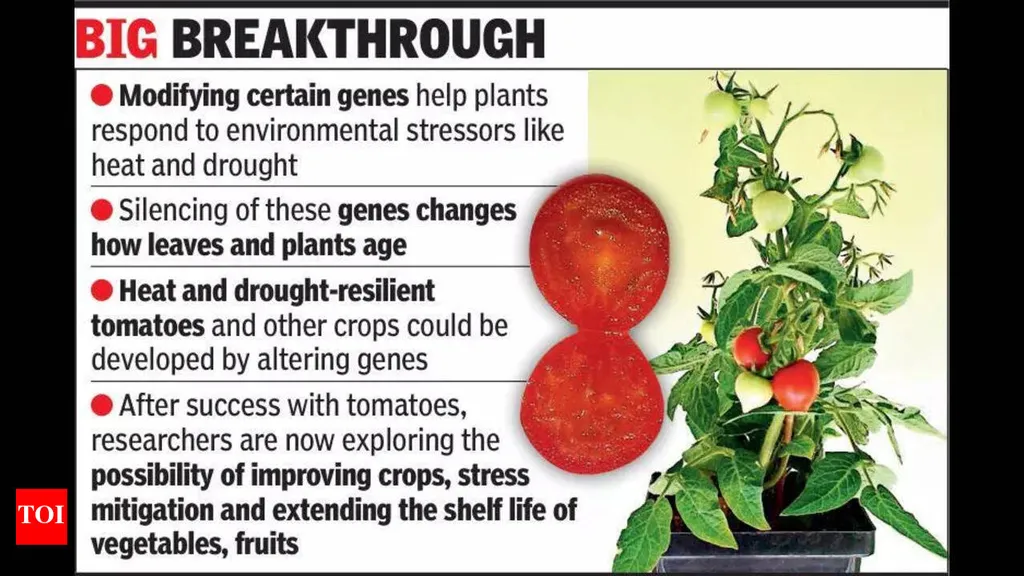In the heart of Hungary, researchers at the University of Debrecen’s Centre for Agricultural Genomics and Biotechnology have uncovered a fascinating aspect of plant behavior that could revolutionize how we approach crop resilience, particularly in the face of environmental stresses. Led by Dóra Farkas, a team of scientists has demonstrated that tomato plants (Solanum lycopersicum L.) can form and maintain transcriptional memory in response to ultrasound and drought stress stimuli. This memory, they found, can last for days and even influence how plants respond to subsequent stresses.
The study, published in the journal ‘Növényjelző és Viselkedés’ (Plant Signaling & Behavior), employed advanced techniques such as mRNA-sequencing (mRNA-seq), whole-genome bisulfite sequencing (WGBS), and real-time quantitative PCR (RT-qPCR) to delve into the intricate world of plant memory. The researchers discovered that two days after exposure to ultrasound and drought stimuli, either alone or in combination, significant changes in gene transcription and DNA methylation occurred. “This indicates that plants have a sophisticated mechanism to remember and respond to environmental stresses,” Farkas explained.
One of the most intriguing findings was the plants’ ability to use one conditioned stimulus as a predictor of another, unconditioned stimulus. This associative memory was observed in three out of four target genes, suggesting that plants can learn and adapt to their environment in ways previously underestimated. “Plants are not just passive recipients of their environment; they actively respond and adapt,” Farkas noted.
The implications of this research for the energy sector are profound. As the world grapples with climate change and the need for sustainable agriculture, understanding how plants remember and respond to stress could lead to the development of more resilient crops. These crops could require less water and be more resistant to environmental stresses, ultimately reducing the energy and resources needed for agriculture.
Moreover, the study’s findings could pave the way for new strategies in plant breeding and biotechnology. By harnessing the power of plant memory, scientists could develop crops that are better equipped to handle the challenges posed by a changing climate. This could have a significant impact on global food security and the energy sector, as more efficient agriculture could reduce the need for energy-intensive farming practices.
The research also opens up new avenues for exploring the cognitive abilities of plants. The concept of associative memory and conditioning in plants challenges traditional views of plant intelligence and suggests that plants have a more complex cognitive repertoire than previously thought. This could lead to a paradigm shift in how we understand and interact with the plant kingdom.
In conclusion, the work of Dóra Farkas and her team at the University of Debrecen represents a significant step forward in our understanding of plant behavior. Their findings not only shed light on the fascinating world of plant memory but also offer promising avenues for improving crop resilience and sustainability. As we continue to explore the cognitive abilities of plants, we may uncover even more ways to harness their potential for the benefit of our planet and its inhabitants.

